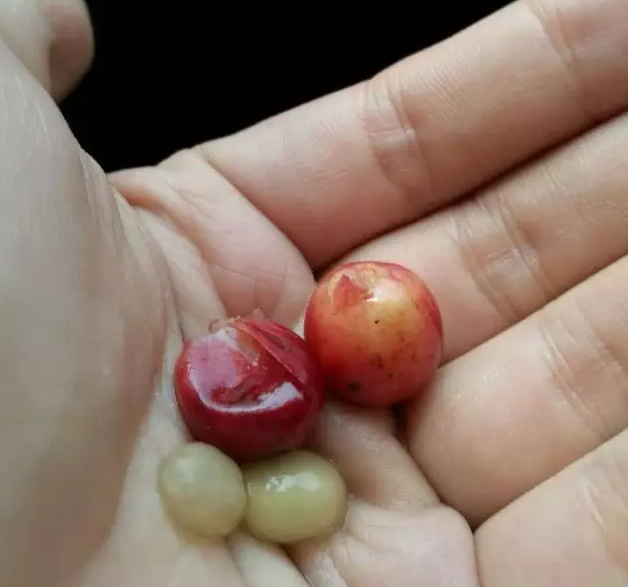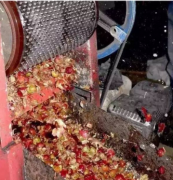How much coffee is there? the flavor of decaffeinated coffee
For professional baristas, please follow the coffee workshop (Wechat official account cafe_style)
Is decaffeinated coffee really decaffeinated at all? many Americans are experimenting with decaffeinated coffee in the hope of getting a cup of "perfect" coffee that only tastes of coffee but does not stimulate the nervous system. But is decaffeinated coffee really non-caffeinated? what's the difference between "decaffeinated" and "natural decaffeinated"? is it absolutely safe to remove caffeine from coffee? you need to understand what's in it first. FDA's standard for decaffeinated coffee is that 97% of the original caffeine in coffee must be extracted from beans. So, yes, decaffeinated coffee still contains caffeine. But it's not a lot, is it? different coffee beans have very different caffeine content. In the United States, the coffee in circulation is roughly two kinds of beans-tenacious robusta coffee beans and subtle Arabica beans. Robusta beans generally contain two to three times as much caffeine as Arabica beans, and their astringency is often considered inferior. Instant coffee brands Folgers and Maxwell Coffee are often made from Robusta mixed bean extract, while Caribou and Starbucks have long insisted on using 100% Arabica beans. Robota beans leave more caffeine after decaffeination than Arabica beans, and need to remove 97% of the caffeine to meet FDA standards. FDA does not specify the exact caffeine content of decaffeinated coffee products. If you are looking for decaffeinated coffee, you should first pay attention to the type of coffee beans you choose. A 12-ounce cup of decaffeinated coffee-a Starbucks mug-usually contains 3 to 18 milligrams of caffeine. By comparison, an 8.4-ounce can of Red Bull contains 80 milligrams of caffeine. The average level of caffeine in coffee can vary widely, usually between 140 and 300 milligrams. So how do you get completely decaffeinated coffee? removing caffeine from green raw coffee beans requires many different processes, and each step affects the roasting process and how long the coffee stays fresh. Decaffeinated coffee spoils almost twice as fast as regular coffee. The earliest decaffeinated method was developed in the early 1900s, using repeated cleaning and assisted by organic benzene. But this method was no longer used to make decaffeinated coffee because it was later identified as a carcinogen. Today, like experienced winemakers, coffee bean processors are starting to use different decaffeinated methods to get the best taste and quality of coffee. Many brands of coffee directly use chemical methods, which also involve chloromethane. The other two methods are natural processes, using the plant hormone ethyl acetate or carbon dioxide or direct washing process. The last method of washing does not use any chemicals, but simply uses water. The process of using carbon dioxide and water washing process is made by SWISS WATER? All of them are considered to be the most natural deconstruction process and the only method of organic authentication at present. Although organic coffee is becoming more and more popular, it is still difficult to find in most supermarkets. Chloromethane, a chemical directly used in the decontamination process of raw coffee beans, is listed as a possible carcinogen by the National Cancer Institute, but FDA considers 10 ppm (ppm) as a safe intake. Trace amounts of the chemical were found in decaffeinated coffee drinks, but most of the mixed concentrations were at or below 1ppm. LorenzoPerkins, vice president of the American boutique coffee association, certified Grade 2 barista, founder of Cuvee Coffee in Austin, Texas, who has been in the coffee industry for 13 years, says the lack of chloromethane in decaf coffee attracts little attention. When he saw all this, he said, "Chloromethane is the least likely to affect the original taste of coffee, because it is also a chemical bond of caffeine alkaloids, which peels off other organic substances and even achieves the desired taste of coffee." Nevertheless, coffee producers quickly felt that consumers were becoming more sensitive to additives. Starbucks uses methyl chloride to remove most of the caffeine from mixed beans. Now, Sumatra, Indonesia offers a better "natural treatment" for decaffeinated coffee. Caribou Coffee uses water without chemicals to make decaffeinated coffee to ensure that there is no chemical residue from the process it uses.

Important Notice :
前街咖啡 FrontStreet Coffee has moved to new addredd:
FrontStreet Coffee Address: 315,Donghua East Road,GuangZhou
Tel:020 38364473
- Prev

What is water washing and what is semi-washing?
Professional barista communication please pay attention to the coffee workshop (Wechat official account cafe_style) washing method: the use of washing and fermentation to remove the skin, pulp and mucous membrane. This method is also known as complete washing (Fully Washed). Washing is the most common way to treat Arabica coffee beans in most coffee-producing countries in the world. Some areas will also use advanced high-pressure washing machines.
- Next

How to adjust the Italian bean grinder and how to check the change of the Italian bean mill
Professional barista communication Please pay attention to the coffee workshop (Wechat official account cafe_style) Caf é to adjust the grinding degree every day, some even once in a few hours, if there is a strict requirement for the extraction results, it should be adjusted again every 5 hours, because beans are changing at every moment, and even air pressure, temperature and humidity will have an impact on the extraction.
Related
- Beginners will see the "Coffee pull flower" guide!
- What is the difference between ice blog purified milk and ordinary milk coffee?
- Why is the Philippines the largest producer of crops in Liberia?
- For coffee extraction, should the fine powder be retained?
- How does extracted espresso fill pressed powder? How much strength does it take to press the powder?
- How to make jasmine cold extract coffee? Is the jasmine + latte good?
- Will this little toy really make the coffee taste better? How does Lily Drip affect coffee extraction?
- Will the action of slapping the filter cup also affect coffee extraction?
- What's the difference between powder-to-water ratio and powder-to-liquid ratio?
- What is the Ethiopian local species? What does it have to do with Heirloom native species?

